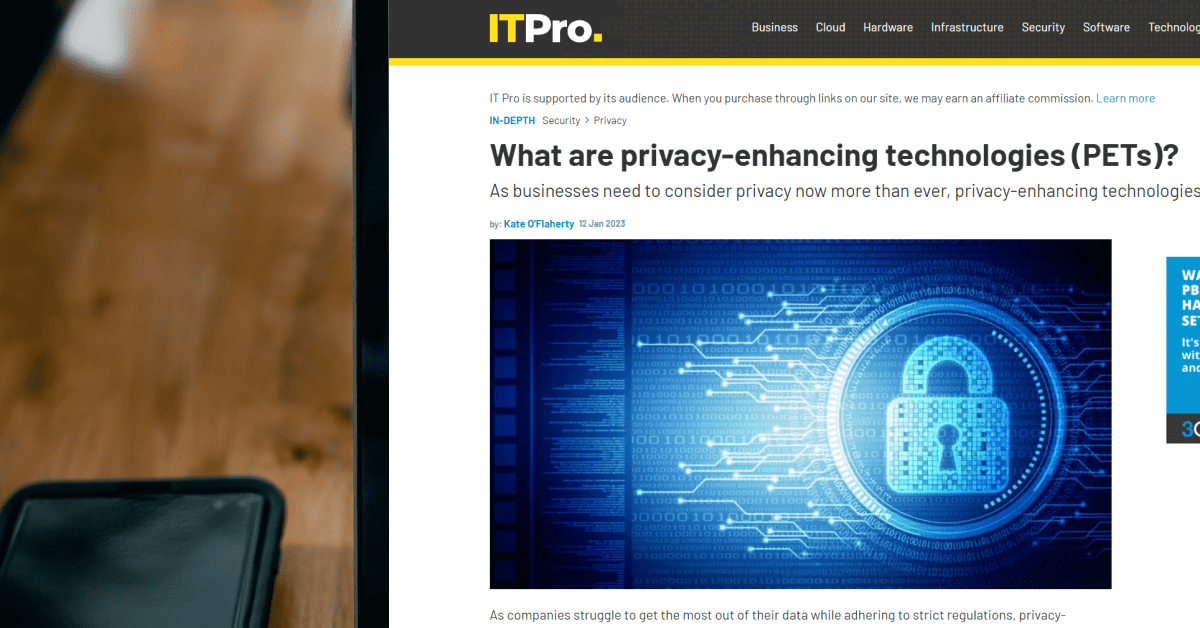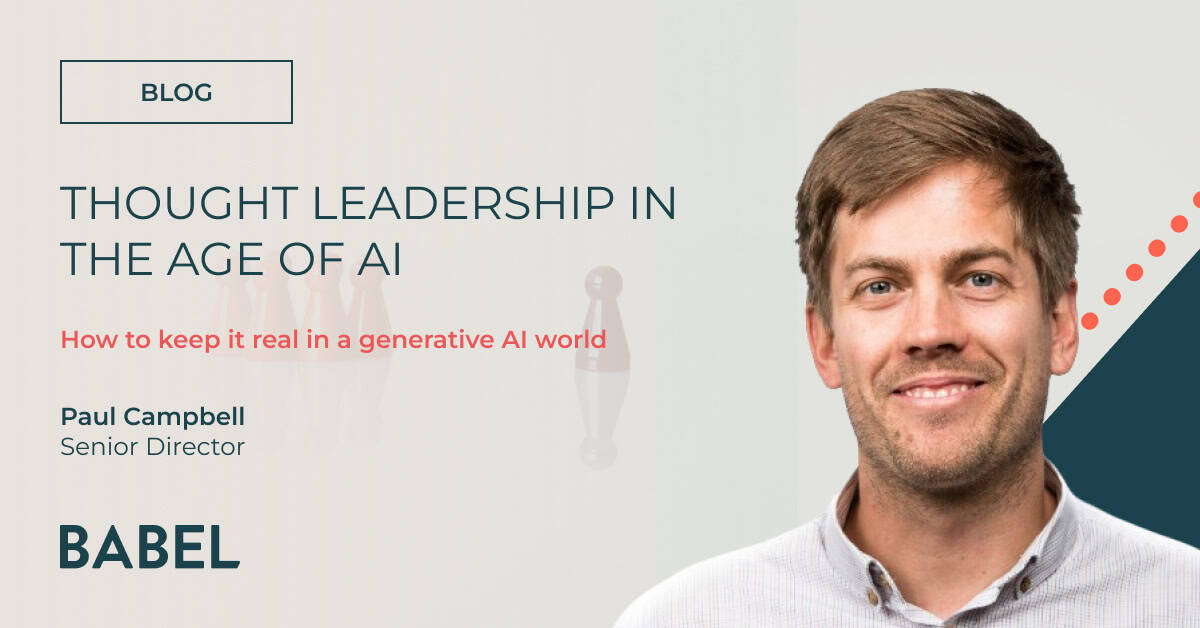
Jumping into January – January’s client coverage highlights
I have to admit, it’s hard to believe that 2022 is already over – I’m still in that start-of-the-year phase of writing the date wrong on the first attempt…
Regardless, this month has been a great start to the year for the Babel team and our clients. The team has worked hard to make sure that we hit the ground running and get our clients at the forefront of the media agenda as it begins to unfold. Stick around to read more about the conversations our clients drove in January!
Silicon Valley 2.0: Britain’s breakthrough as the next Silicon Valley
Towards the end of January, Chancellor Jeremy Hunt outlined his four pillars to grow Britain’s economy as he aims to lay solid foundations for the future – Enterprise, Education, Employment and Everywhere. Hunt’s plan aims to make Britain the “next Silicon Valley” and turn it into a hub for technology innovation, responding to the idea that the future is digital.
The Chancellor’s speech appeared to be a call for help from the technology industry while highlighting that there are still key problems that need to be mitigated in order for the technology industry to excel, including the skills gap and a lack of funding for start-ups.
In response to the Chancellor’s speech, Chief Executive at data lineage company and new Babel client Solidatus, Philip Dutton, spoke to ITV News about the tremendous growth that the company had experienced. Dutton told ITV News that London has played a critical role in the success of the company and that without being based in London, Solidatus’ journey could have taken more than 20 years, or may not have happened at all. Dutton suggested this is largely due to London’s large and diverse network of clients along with the abundance of talent that is available to businesses.
Protecting privacy in the digital age: the growing need for Privacy Enhancing Technology
As data regulation begins to shape the technology landscape, and consumers become increasingly aware of how their data is being used, privacy-enhancing technologies, or PETs, have become more important than ever before.
PETs come with a wide range of advantages, the most prominent being that this set of technologies allows businesses to extract relevant data while allowing individuals’ privacy to remain intact. As we welcome a cookieless future, with the downfall of third-party data and the rise of first-party data, PETs will come in useful for (ethically) gathering customer data. Big tech companies such as Meta have already embraced this movement, and have incorporated the use of PETs in their digital advertising initiatives.
The possibilities for PETs have also been noticed by both the UK and US governments, who announced that they have introduced a joint initiative to help boost the adoption of PETs in businesses – who will now consider how PETs can be integrated into their current processes.
One of the key features of PETs is homomorphic encryption, which simply allows complex mathematical operations to be performed on encrypted data without first having to decrypt it. CEO Dr Ellison-Anne Williams at client Enveil, which is a leading PET company, discusses the power of this technology in ITPro, you can read the full article here.
A ransomware attack turns into data theft at The Guardian
The cybersecurity landscape is constantly evolving alongside technology, and as such attacks are becoming increasingly severe. 2023 has been no exception to this growing trend, and towards the beginning of the month, The Guardian confirmed that they fell victim to a ransomware attack. This attack involved threat actors gaining access to personal data about The Guardian’s UK staff members, with executives at The Guardian describing the incident itself as a “highly sophisticated cyber-attack involving unauthorised third-party access to parts of our network”.
Dominic Trott, head of strategy at Orange Cyberdefense, commented on this attack in Infosecurity, stating that, although many attacks of this nature are described as being ‘sophisticated’, they are fairly common and easily executed. With this in mind, Trott believes that we need to stop referring to simple ‘spray and pray’ phishing attacks as sophisticated attacks. In reality, it does not require a lot of effort to gain access to a large organisation’s network. Trott stated that it is more important than ever before to implement training programmes to build awareness of simple cybercrime techniques and reduce the human element in cybersecurity – to help prevent issues like this in the future.
Ransomware is a barrier to digital transformation, Veeam reports
Continuing the theme of ransomware… a recent report featured in Computer Weekly, from data protection company and client Veeam, shows that 83% of IT leaders believe that there is an “availability gap” between how quickly systems need to be recoverable and how soon systems can actually be recovered. 81% also identified a “protection gap” between data they can’t afford to lose and how much of that data is actually protected. These gaps are perfect targets for threat actors, and the mere fact that these gaps exist is putting businesses at risk.
As ransomware threats increase, digital transformation is being stunted as a result, according to Veeam’s research, which reported 38% of respondents said that ransomware was the biggest barrier to both digital transformation and IT modernisation.
Account-to-account payments unlock a realm of opportunity for businesses and consumers alike
As a result of increased regulation in the payments sector, such as PSD2 and the recent mandate on instant payments across Europe, the adoption of open banking has skyrocketed. With the Open Banking Implementation Entity in the UK announcing that it has surpassed six million open banking users, the impact of real-time payments cannot be disputed.
Account-to-account payments provide a range of benefits for both businesses and consumers, which are especially important during a cost-of-living crisis. Chief Growth Officer, Jordan Lawrence, at leading open payments gateway Volt, spoke to Internet Retailing about the benefits.
Firstly, account-to-account payments have a fee of 1% or lower per transaction, which is drastically lower than credit and debit card fees, which range from 1.5% to 3.5% per transaction. Not only this, account-to-account payments can also help to speed up settlements. Merchants often need to wait for between three to five business days for a card transaction to reach their accounts, but account-to-account payments are near instant. This provides merchants with more control over their cash flow and payments can be refunded quicker when account-to-account payments (A2A payments) are utilised. Finally, account-to-account payments can help to eliminate chargebacks as they prevent forced payment reversals, and consumers’ protection remains intact.
You can hear more about the advantages that account-to-account payments can unlock for merchants and businesses here.
And there you have it, a month of great coverage to start off the year. If you would like to hear more about how Babel can help you to drive the conversations in your sector, please do reach out.
Latest event
The European Union Artificial Intelligence Act
Artificial Intelligence (AI) - the simulation of human intelligence processes by machines - is having a growing impact on our lives. While the technology has the potential for good, fears have been raised that it presents significant risks to people’s rights and well-being. The European Union (EU) is set to create the world's first broad standards for regulating or banning certain uses of AI. The AI Act will establish a framework for assessing the relative risk of different kinds of AI systems. The European Parliament is expected to vote on the draft by the end of March 2023, with a view to adopting the Act by the end of 2023. The Act will extend to providers and users outside the EU where the output is used in the region. In this webinar AI experts will examine the potential impact of the Act on consumers, businesses and technology vendors. Featuring Matt Kusner, Associate Professor in Machine Learning, University College London and Jane Finlayson-Brown, Partner, Allen & Overy.
Register here
Written by Lauren OHarrow
PR Assistant





